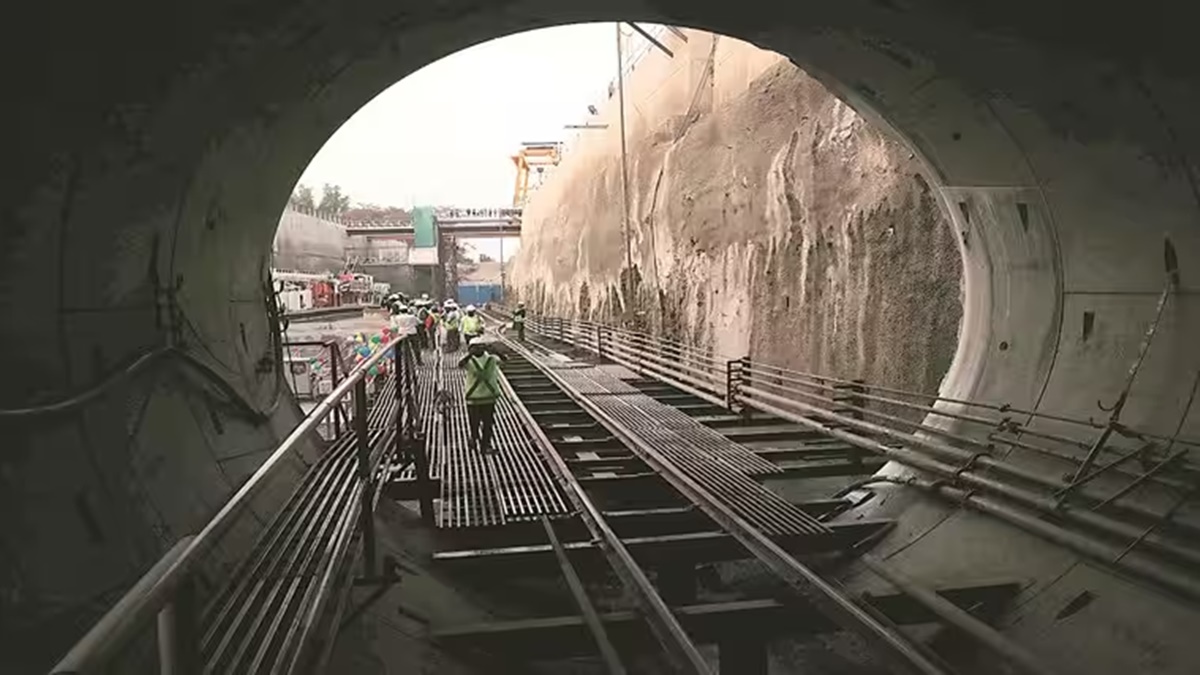The BMC has petitioned the Supreme Court to permit felling of 95 trees within Sanjay Gandhi National Park for a crucial shaft in the Goregaon–Mulund Link Road tunnel, citing public interest despite environmental sensitivities. The Brihanmumbai Municipal Corporation (BMC) has asked the Supreme Court for permission to cut 95 trees inside Sanjay Gandhi National Park (SGNP) to prepare a shaft for the initial phase of the Rs 14,000‑crore Goregaon–Mulund Link Road (GMLR) tunnel.
The 6.62‑kilometre twin‑bore tunnel is aimed at easing east‑west traffic, offering commuters a one‑hour travel reduction between Goregaon and Mulund . In January 2025, the Supreme Court prohibited the Mumbai Tree Authority from authorising tree cutting in Aarey without court approval. The BMC’s petition seeks to comply, stating that the trees earmarked for removal do not lie in the eco‑sensitive Aarey Milk Colony, despite the overall area being a part of Aarey village . The tunnel project, stretching under SGNP, relies on a 200 × 50 × 35‑metre deep launching shaft to lower two massive TBMs each measuring 95 m long and 14.5 m wide. Its construction necessitates cleared ground space, leading to the proposed removal of 95 trees in phase one, following a minor shift in shaft location to bypass tribal hamlets—raising the count by 40 trees .
A broader environmental impact assessment already identified around 1,567 trees that will be affected in later stages, with 513 slated for complete removal and 581 considered for transplantation . The BMC notes the tunnel will run beneath park cover, preserving most surface greenery . The GMLR forms part of a larger mobility strategy to reduce surface-level congestion and carbon emissions by encouraging underground mass connectivity. The BMC has realigned the tunnel by approximately 600 metres to avoid tribal farmland, adding another ₹248 crore in cost and pushing expected tunnel completion to mid‑2028 . Environmentalists and NGOs caution that even limited felling within protected forest boundaries could destabilise biodiversity corridors and set troubling precedents. Past tunnel and road projects under SGNP have prompted demands for relocated afforestation, wildlife monitoring, and thorough ecological assessments . Civil society also raises concerns that tree transplantation may not fully compensate for habitat loss, while real-world survival rates for transplanted saplings and mature trees are variable. Advocates call for rigorous mitigation measures, including independent biodiversity monitoring during construction.
The BMC has assured that the SGNP canopy above the tunnel route will remain intact, and SRNP’s bio‑diversity will be monitored. However, clear assurances of mitigation quality and long‑term ecological compensation are pivotal to meeting sustainability goals . Commuters and urban planners underscore the project’s persuasive public service argument. Once operational, the tunnel aims to drastically reduce vehicular emissions by diverting traffic from congested arterial roads, aligning with Mumbai’s pursuit of equitable, gender‑neutral and low‑carbon public mobility. The petition to the apex court marks a critical juncture. Approval must balance infrastructural necessity with ecological stewardship, ensuring biodiversity is not collateral damage. If granted, the BMC plans subsequent phased permissions for the remaining 1,039 trees in future stages. Striking this balance is essential: while Mumbaikars stand to benefit from reduced congestion and shorter commutes, long‑term urban resilience depends on protecting the very green lungs that sustain the city’s climate and wildlife.
Also Read :Trichy converts drain banks into vibrant community green space


